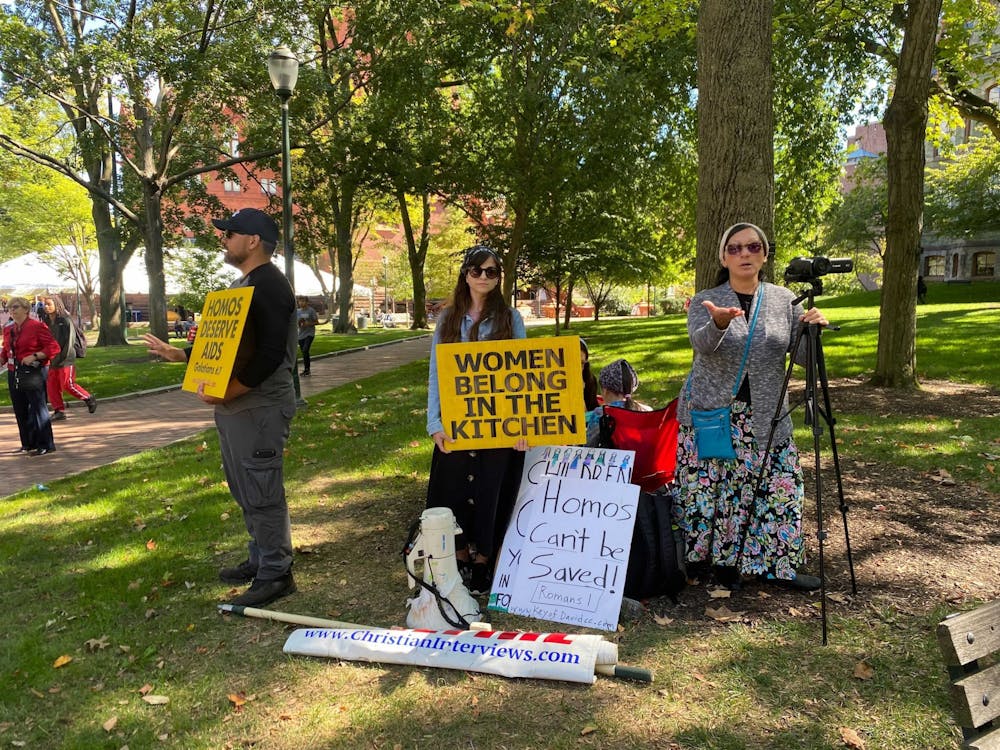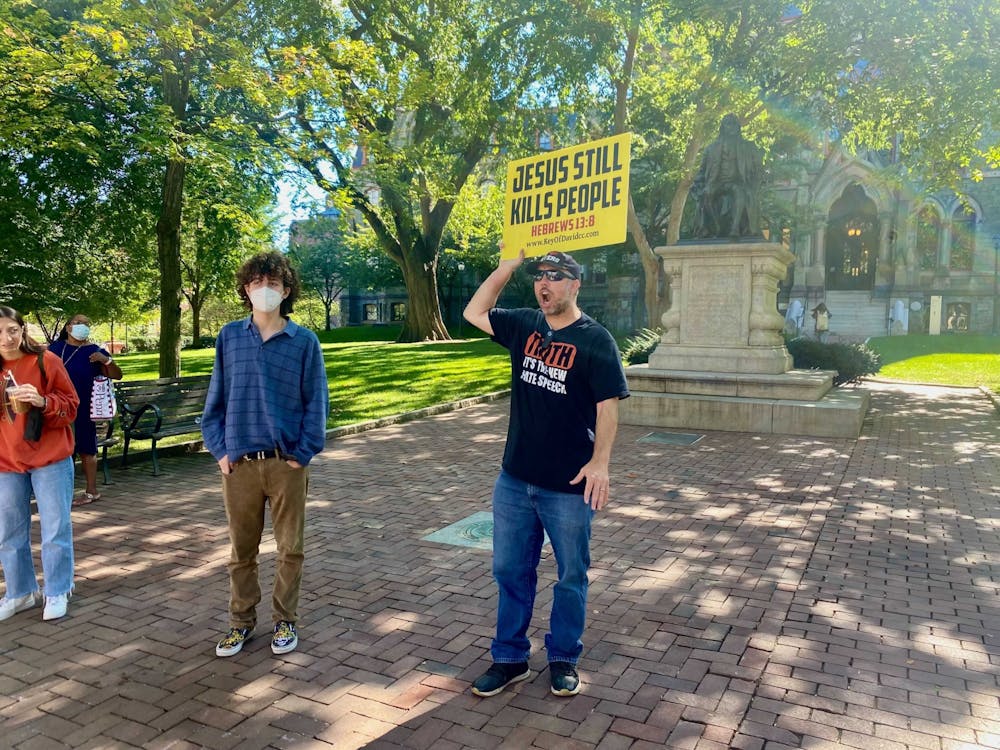It’s a Tuesday afternoon. As you head to your next class of the day all the way in DRL, you decide to scroll through Instagram for the third time in ten minutes. In story after story, you see the same thing: Those damned preachers are back.
You rush to Van Pelt and join the crowd of students jeering and recording. The girls next to you are rolling their eyes at the screaming ringleader’s yellow “Women Belong in the Kitchen” sign. The amount of students congregated there ebbs and flows, but the crowd never fully disappears as more and more people continue to express their disgust at the extremist messages in front of them.
Meanwhile, as the students act as pure spectators of the all–too–familiar protest, the Office of Student Affairs (OSA) is bustling around, delegating the next Open Expression Observer to head over to maintain peace.
Executive Director of Student Affairs Katie Bonner oversees a team of about 20 volunteer Open Expression Observers. They work to make sure that these protests, as well as other University–sponsored events, remain peaceful and stick to Penn’s Guidelines on Open Expression.

Executive Director of Student Affairs Katie Bonner
Under her umbrella role, Bonner works with guest speakers who may be considered controversial to make sure that they're both adhering to and protected under Penn’s commitment toward a free exchange of ideas. “I think it’s important that we’re able to put legs to Penn’s policy in supporting our freedom of speech and that it’s not just a thing we say, but a thing that we really try our best to support,” she says.
Open Expression Observers are often necessary at events that tend to encourage passionate reactions from attendees, and being controversial is a part of that. Regarding the preachers on campus, Bonner explains, it’s often not so much about controversy (as people generally disagree with their messages), but about crowd reaction control. When protest activity pops up, OSA does its best to get someone on site immediately to act as a comforting presence for those nearby.
As college students who learn more about the world every day, it's important for us to understand the value of safely engaging with disagreeable people and their correspondingly disagreeable ideas. It’s a slippery slope when it comes to shutting down speech on campus, especially hate speech. Hate speech is legally protected by the First Amendment—hate crimes are not. Because speech is a protected right, it is continually difficult to decide which kinds of statements are okay and which are not.
Because Penn is a part of Philadelphia—as well as part of a greater international community through its research—public speech from diverse groups of people takes place on campus on a daily basis. Friction and disagreement in such a space is natural and an incredible opportunity, Bonner says.
“Maintaining a commitment to free speech also inherently means that the antidote to bad speech is more speech, not shutting down said speech,” she continues. If certain kinds of speech were regularly silenced, it would cause a sort of chilling effect—people would be uncomfortable or unwilling to express certain points of view, which Bonner doesn’t think helps us achieve our aims as an educational institution.
Deciding what counts as protected versus unprotected speech is a difficult line to toe. After all, don’t we all choose where to go to college based at least somewhat on universities' mission statements and what they stand for? How can we tolerate hateful speakers on campus? Truthfully, we don’t have a say on this specific matter. Most “uninvited” speakers to campus tend to make their mark by jumping through all of the necessary loopholes to avoid ejection, such as using handheld banners instead of setting up tables in order to not be considered an “official event.” Additionally, while Penn does condemn hate speech, the University also cherishes the concept of free speech as a fundamental right, along with the majority of college campuses across the United States. Colleges and universities aren't always legally able to control the speech that happens on their grounds.
However, it’s never easy to stand around and listen to the various extremists that visit campus. Bright yellow signs that read “Homos Deserve AIDS” and “Drunks Burn in Hell!” do nothing but propagate hate on Penn’s turf. It's almost impossible not to look while these protesters yell their abusive rhetoric at throngs of students. Bonner suggests ignoring them as much as possible to deprive them of the attention they seek.


“I feel very strongly that the minute we start to censor speech in any way, it will be weaponized against marginalized communities, and that is not something that we want to encourage or create on our campus,” Bonner says.
The next time you pass by angry men screaming about why everything you stand for is immoral and deserving of eternal damnation, remember that they don’t deserve your attention. Open Expression Observers are there to make sure that everyone's rights are protected.

